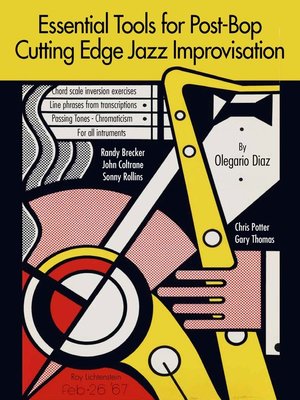
Sign up to save your library
With an OverDrive account, you can save your favorite libraries for at-a-glance information about availability. Find out more about OverDrive accounts.
Find this title in Libby, the library reading app by OverDrive.



Search for a digital library with this title
Title found at these libraries:
| Library Name | Distance |
|---|---|
| Loading... |
Post-Bop is a modern jazz style that continues the distinguishing characteristics that separate jazz from the world of pop and rock; swing rhythm and extended harmonies (9th chords 11ths, altered chords, etc). Post-Bop grew out of the Hard Bop genre during the early to mid 60s as musicians such as Bill Evans, Wayne Shorter and Herbie Hancock began to introduce more extended harmonies, abstract structures and looser rhythms in their playing and compositions.
When Hancock and Shorter joined Miles Davis's quintet in the mid-60s, that group became the perfect vehicle for extending the boundaries of what could happen in a Post-Bop format. The Miles Davis Quintet albums, "Nefertiti" and "Sorcer", continue to be pinnacles of Post-Bop composition and performance. Some styles of free modal jazz, such as Coltrane's "A Love Supreme", are also part of the Post-Bop sound.
Although there are still some musicians, such as Kenny Garret, who play in that style, mostly that sound has been fading since the early 70s. Of course, theory doesn't come close to explaining music. If music is a language, theory is just grammar. More important than grammar is knowing the vocabulary that comes from listening, with awareness, to great players, and playing as much as possible. Beyond grammar and vocabulary is the ability to communicate with listeners to "tell a story," and to reach an audience on an emotional, or even spiritual, level.
When Hancock and Shorter joined Miles Davis's quintet in the mid-60s, that group became the perfect vehicle for extending the boundaries of what could happen in a Post-Bop format. The Miles Davis Quintet albums, "Nefertiti" and "Sorcer", continue to be pinnacles of Post-Bop composition and performance. Some styles of free modal jazz, such as Coltrane's "A Love Supreme", are also part of the Post-Bop sound.
Although there are still some musicians, such as Kenny Garret, who play in that style, mostly that sound has been fading since the early 70s. Of course, theory doesn't come close to explaining music. If music is a language, theory is just grammar. More important than grammar is knowing the vocabulary that comes from listening, with awareness, to great players, and playing as much as possible. Beyond grammar and vocabulary is the ability to communicate with listeners to "tell a story," and to reach an audience on an emotional, or even spiritual, level.







